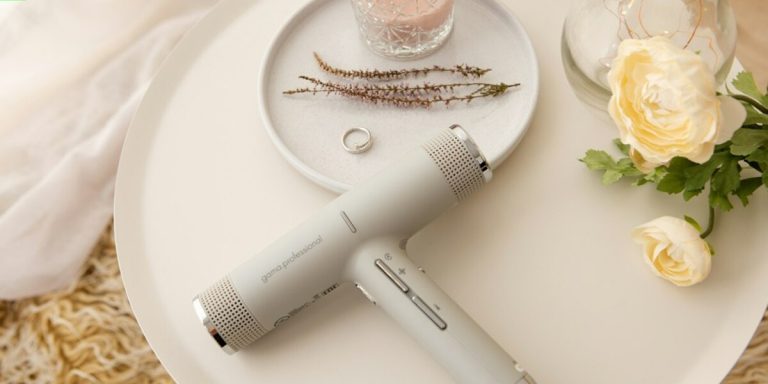Inositol Hair Regrowth: Unveiling the Science Behind its Effectiveness
Hair loss is a worldwide concern affecting millions, and finding effective solutions can seem like searching for a needle in the haystack. An up-and-coming treatment gaining traction is “inositol hair regrowth”. Inositol, also known as vitamin B8, has been linked to numerous health benefits including improving hair growth patterns.
This article unpacks everything about inositol hair regrowth – from how it works on your scalp to scientific evidence supporting its effectiveness. The objective here isn’t just informing you but establishing why this component might be the missing piece within your comprehensive approach toward combating unwanted thinning or balding.
Did you know?
Did you know that Inositol, often associated with B-vitamins, plays a vital role in your hair’s health? Deficiency can lead to alopecia – yet another reason for its critical inclusion in the regime of those seeking healthy hair regrowth.
Understanding Inositol: The Cornerstone for Hair Regrowth
Inositol, a naturally occurring carbohydrate often referred to as vitamin B8, has been sparking significant interest in the hair regrowth industry. Packed with potent properties that promote healthier and more vibrant hair growth, it’s fast becoming an indispensable component of various successful hair care routines.
Diving deeper into its benefits reveals how Inositol functions at a cellular level to stimulate regrowth. Essentially, this nutrient aids in the process of strengthening cell membranes notably those present within your eyes, intestines and our area of focus – the scalp. By augmenting these cells’ health on your scalp region specifically can lead to fortified follicles resulting in denser strands over time.
Studies suggest that regularly ingesting or applying Inositol can improve hair condition. Users report transformative changes in their hair health after using Inositol for just a few weeks. Incorporating it into their routine has led to:
- Promotion of new hair growth
- Fuller and shinier existing hair
Healthy scalps lead to shiny tresses, underscoring the importance of understanding Inositol as part of effective hair regrowth strategies.
Exploring the Role of Inositol in Hair Health
Inositol, often referred to as vitamin B8, plays a crucial part in hair regrowth. Delving into the use of “inositol for hair regrowth”, it becomes apparent just how integral this nutrient is for healthy follicles.
Our bodies naturally produce Inositol from carbohydrates we consume. It serves various functions like facilitating cell communication and fat breakdown while also playing an active role in our nerve function and insulin response; all essential aspects contributing towards maintaining overall body health.
Turning our attention specifically to its connection with hair health, research shows that individuals struggling with alopecia or other types of significant hair loss have noticeably lower levels of inositol compared to those sporting a full head of thriving locks.
One study conducted on laboratory animals found when deprived entirely from Inositol, they experienced baldness. However once reintroduced back into their diet gradually led them experiencing vibrant fur regeneration indicating the importance of inotisol for healthy growth cycles not only among humans but across species too!
Scientific Insights into How Inositol Promotes New Hair Growth
Inositol, a type of vitamin B complex, is making waves in the hair regrowth industry. This carbohydrate compound holds profound possibilities for those battling baldness or thinning hair and wants to stimulate new growth.
Let’s delve into its science-based mechanisms on how it uplifts your follicles from their slump and propels them back into an active growing phase.
Firstly, Inositol works by fortifying cell membranes throughout our body – including the ones present within hair follicles. Its primary aim? To ensure these tiny cells are strong enough to withstand damage induced by stressors like pollution, UV rays, chemicals from styling products etc., which otherwise tend to weaken them over time leading eventually towards miniaturization (shrinking) hence reduced production of new strands.
Remember healthier follicle equals more vibrant tresses!
Secondly, have you heard about Internal Communications between cells? Inositol enhances efficient message transmission, improving cellular communication. This fluid communication through internal biochemical pathways allows cells to function better together as a dynamic unit. The benefits include:
- Contributing positively to overall cell functions.
- Playing a key role in producing keratin protein.
- Strengthening individual fibers.
- Enhancing thickness and density.
This gives your hair a full-bodied appearance, essential for successful regeneration processes like hair regrowth.
Natural Sources and Supplements of Inositol for Optimizing Hair Growth
In the realm of natural remedies for hair regrowth, inositol holds a powerful place. This vitamin-like substance is found abundantly throughout our diet and plays vital roles within our body, especially when it comes to optimizing hair health. From sunflower seeds to citrus fruits and beans, nature provides a wealth of resources rich in this essential compound that could potentially invigorate your locks from root to tip.
The power of inositol doesn’t just lie within naturally occurring food sources but also extends into scientifically formulated supplements designed specifically for boosting its uptake. Modern-day nutraceuticals often combine inositol with other vitamins and minerals known for their benefits on hair growth such as biotin, folic acid or Vitamin B5 among others – creating potent cocktail blends targeted at strengthening follicles and stimulating hair proliferation at the cellular level.
Why do we need extra inositol? Despite its abundance in our diets and availability as a supplement, several stressors can lead to deficiencies. Poor nutritional habits and environmental pollution may not allow the body to meet its normal requirements, negatively impacting follicular function. To achieve optimal scalp health, it’s crucial to reinforce these levels. As we head into 2023, wellness trends are emphasizing holistic approaches that proactively address potential nutrient gaps instead of reacting after significant hair loss.
Identifying Foods Rich in Inositol to Enhance Your Diet
Integrating certain foods into your diet can significantly enhance inositol levels and promote hair regrowth. A well-balanced, inositol-rich diet not only supports overall health but also nourishes the scalp from within.
First on our list are whole grains such as brown rice, oatmeal and quinoa. They contain complex carbohydrates that provide a substantial amount of Inositol which is instrumental for hair strengthening and growth. Not to mention how they’re packed with various other nutrients essential for maintaining general wellbeing.
Next up: citrus fruits like oranges, grapefruits or lemons come loaded with their share of Inositol too! These sunshine-filled delights contribute to better blood circulation around the scalp area leading ultimately towards healthier fuller-looking locks.
Citrus isn’t alone – most types of berries notably blueberries raspberries strawberries are an excellent source as well. Their high antioxidant properties combined alongside natural doses offer dual benefits – combating oxidative stress contributing positively toward optimal follicle function thereby encouraging new strands sprout forth!
Evaluating Supplement Options and Recommended Dosages
With the increasing interest in natural remedies for hair regrowth, Inositol supplements have garnered considerable attention. Given its crucial role in promoting hair health, understanding the different supplement options and their recommended dosages is critical.
The first thing to understand is that not all supplements claiming to promote “inositol hair regrowth” are created equal. It’s prudent to assess each option based on a few essential factors – its source of inositol (synthetic or natural), additional ingredients included, dosage instructions provided by the manufacturer, and verified consumer reviews focusing on effective results specifically for hair growth.
In terms of synthetic forms available as over-the-counter pills or powder formulations which can either be consumed orally or applied topically onto scalp region might also prove beneficial given these contain higher concentrations than what one would otherwise consume through routine diet regimen.
Integrating Inositol into Your Daily Hair Care Routine
Incorporating inositol into your day-to-day hair care regimen could be a game-changer for individuals seeking solutions to persistent hair loss issues. Known as an invaluable vitamin belonging to the B-complex family, this naturally occurring compound has been drawing attention within dermatological circles due its potent ability to stimulate and accelerate healthy hair regrowth.
Inositol plays a vital role in maintaining follicular health by performing several crucial functions that include:
- Promoting cell growth
- Facilitating effective signal transmission between cells
These functions contribute to dense, resilient hair. By ensuring optimal cellular function at the scalp level, inositol creates an environment that:
- Encourages new hair growth
- Prevents premature fallout
- Reduces thinning associated with nutrient deficiencies
- Consuming nuts, beans, and whole grains, which are rich sources of this nutrient.
- Taking oral supplements as advised by physicians or healthcare providers to meet individual requirements and ensure safe consumption levels.
For topical application:
- Use shampoos and conditioners that contain the necessary concentrations of inositol for direct absorption through the scalp, ensuring benefits reach every root.
Adopting an Inositol-Enriched Diet Plan for Healthy Locks
Initiating an inositol-enriched diet is a significant step towards promoting hair regrowth. Inositol, also known as Vitamin B8, is instrumental in fostering hair health and potentially enhancing the growth rate of your tresses.
Introduce more inositol-rich items into your daily meals by incorporating specific foods strategically to significantly increase the nutrient’s levels available for absorption by the body. Here are some effortless ways to do it:
1. Start with Whole Grains: Packed full of numerous vitamins including our focus – Inositol, whole grains like brown rice or oats make great breakfast options.
2. Include Citrus Fruits: Oranges and grapefruits not just bring a refreshing zest palette to any meal but they’re also rich sources of vitamins such as Inositol which foster healthy locks.
3. Add Legumes on plate: Don’t resist that serving impulse! Beans & lentils have high concentrations of B-Vitamins especially our key player – Inositol!
4. Snack Smartly : Opt for nuts seeds whenever you crave something munchy; these tiny powerhouses carry hefty amounts vitamin b8—the exact component we want boost within bodies through consumption habits.
Remember that while eating beneficial compositions could aid “inositol hair regrowth”, it’s equally important consider other lifestyle factors affecting overall health—one them being adequate sleep bodily hydration level maintenance along stress management techniques implementation too!
Topical Applications: Using Products Infused with Inositol
Incorporating products fortified with inositol into your daily hair care routine can revolutionize the way you approach hair regrowth. The key is topical applications, which allow for direct absorption of inositol by the scalp and roots.
One easy method to integrate ‘inositol hair regrowth’ techniques is through infusing your regular shampoo or conditioner with this vitamin B compound. You’ll be able to cleanse and nourish your locks simultaneously. Select a high-quality product boasting an ample concentration of inositol, ensuring efficient delivery directly to where it’s needed most – on the top layer of skin covering our skulls.
Furthermore, incorporating serums rich in Inositol as part of nightly regimen can deliver beneficial effects over time; when sleeping patterns align greatly enhancing health benefits from these treatments due mainly towards night-time recovery process carried out every single evening among individuals worldwide!
In 2023, advancements have led to the creation of creams and lotions containing high concentrations of Inositols. These products stimulate growth at the follicular level for quick and efficient results. Previously unavailable, these innovations provide a promising outlook for future developments. Predictions for these advances draw from trends observed over past decades up to today’s timeline.
Conclusion
In the fascinating world of hair regrowth, inositol proves itself to be quite a gamechanger. With its potency and effectiveness that are backed by science, choosing it as part of your daily regimen is indeed a smart move for anyone targeting optimal hair growth.
Remember though: healthy habits don’t stop at taking supplements; they extend into overall lifestyle choices. To learn more useful tips on promoting stronger, healthier tresses or understand better about various aspects related to hair regrowth—feel free to sift through other resources available here on our website.







